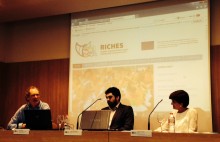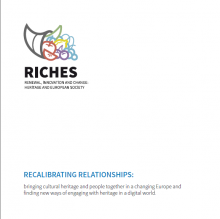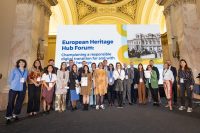-
Join the
Digital Meets Culture
Newsletter! -
Join the
Digital Meets Culture
Open Newsroom! If you have interesting news and events to point out in the field of digital cultural heritage, we are waiting for your contribution.
If you have interesting news and events to point out in the field of digital cultural heritage, we are waiting for your contribution.
-
Free text
-
-
Upcoming events
-
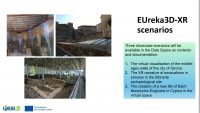 The kick-off for the new project, continuation of the successful EUreka3D, is organized in Pisa by coordinator Photoconsoritum on 26-27 February 2025
The kick-off for the new project, continuation of the successful EUreka3D, is organized in Pisa by coordinator Photoconsoritum on 26-27 February 2025EUreka3D-XR – European Union’s REKonstructed content in 3D to produce XR experiences EUreka3D-XR is the continuation project of EUreka3D, funded by the Digital Europe Programme of the European Union, to develop innovative re-use scenarios and tools that enable the creation … Continue reading →
 Siena (Italy), 8-13 September 2025
Siena (Italy), 8-13 September 2025 As the leading global event on digital technology for documenting, conserving, and sharing heritage—from landscapes and monuments to museums, collections, and intangible traditions—the Digital Heritage International Congress offers a unified stage for major world conferences, workshops, and exhibitions. … Continue reading →
Author Archives: Claudia Pierotti

Models can catwalk through holograms of themselves, T-shirts can hug you and couture is being designed virtually and then printed using a 3D printer – no needle and thread involved. These marvels are developing at full speed, changing the way we see, design, make and buy clothes. Continue reading

The Cultural Institute at King’s College London is happy to launch CultureCase: a new, free-to-use web resource that aims to put academic research to work in the cultural sector. The resource translates academic-standard research into digestible 300-word summaries and makes them available for the first time in one portal. Continue reading
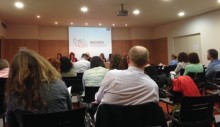
On 13th May i2CAT Foundation, in collaboration with the Universitat Internacional de Catalunya (UIC), organised the first RICHES open to all activity in Barcelona. The activity focused on building the project’s foundation and establishing the project’s taxonomy: a set of basic definitions and conceptual frameworks which will delineate RICHES’ fields of research and further study on the context of change and the role of Cultural Heritage (CH) in the economic and social development in Europe. Continue reading

FEDERCULTURE restarts its training project. On the 20th of May 2014, in Rome, was held the first course of a cycle devoted to deepening several aspects of the cultural services management: gathering of funds techniques, information day about the next EU announcements for culture, fiscal issues of sponsorship, new frontiers of cultural marketing. Continue reading

On the 27th of May 2014, at Cappella Farnese of Palazzo d’Accursio, in Bologna, Electrical Engineer and Cognitive Psychologist Donald Norman presented his book “The Design of Everyday Things”, extended version of the initial edition “The Psychology of Everyday Things” (Italian title “La caffettiera del masochista – il design degli oggetti quotidiani”). Continue reading

Capturing the Intangible was a two-part event taking place at the Institute of Contemporary Arts, in London, on the 29th May and 5th June 2014, at 6-8pm. The two discussion panels introduced the notion of intangible heritage and its relation with performance and discussed the relevance of material knowledge to virtual culture, whilst considering the future role of Cultural Institutions. Continue reading
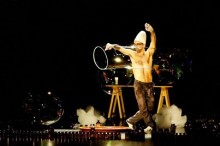
From 15 to 17 May 2014, in Belgium, at the Troubleyn Theater and the Royal Conservatoire of Antwerp, it was held the colloquium Thinking bodies – Moving minds. The event focused on the topic of performing arts, which in the last years witnessed a proliferation of research; this colloquium aimed to make a current state of this new field of research and to critically reflect the position of artistic research in respect to the artistic practice and the academic field. Continue reading

The project Cultural Heritage Counts for Europe will gather, analyze, consolidate and widely disseminate the existing data on the impact of cultural heritage – i.e. the impact on the social, economic, cultural as well as environmental. It will result in a European mapping of both qualitative and quantitative evidence-based research carried out at the European, national, regional, local and/or sectorial levels. Continue reading


